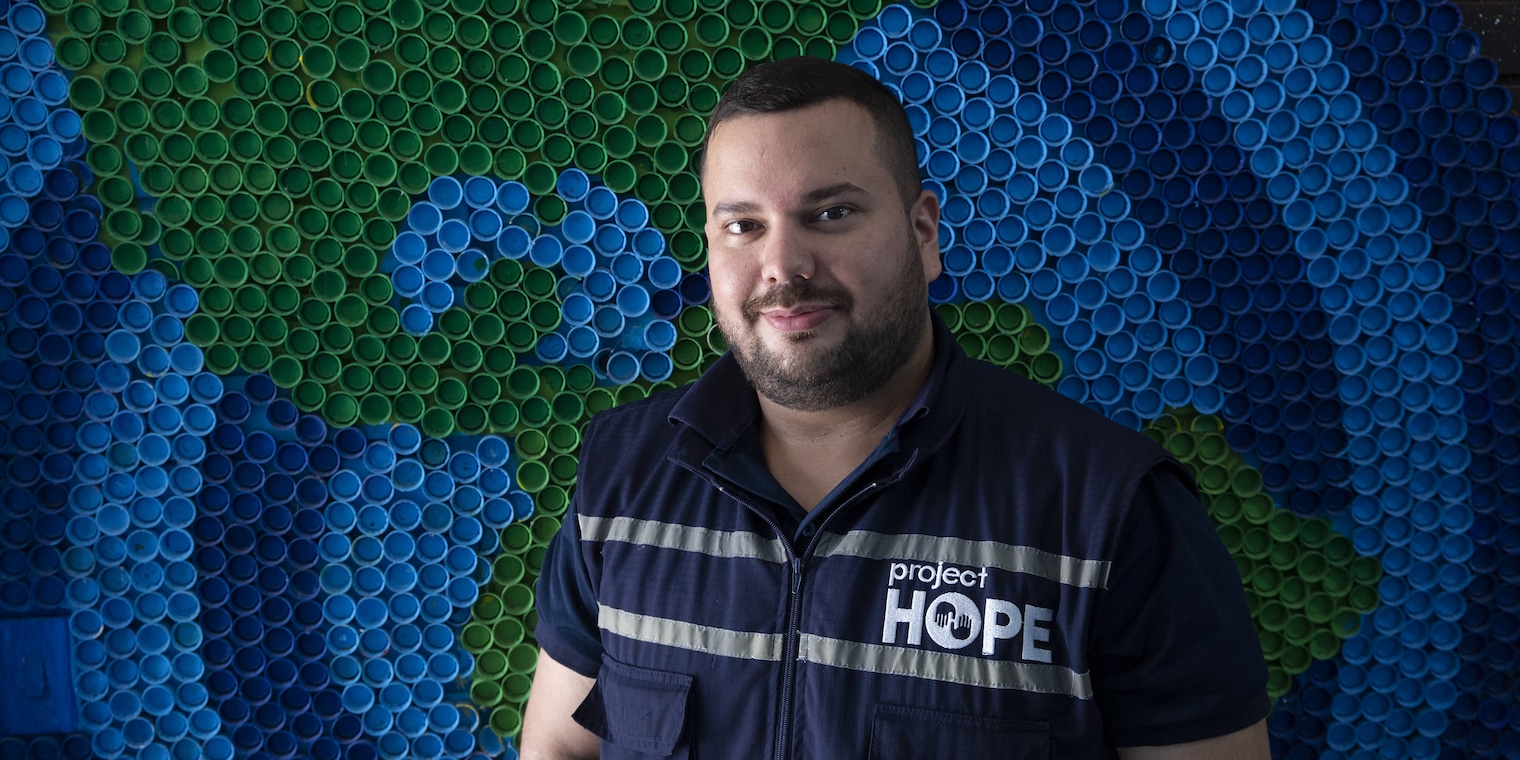
What Our Global Team Members Are Thankful For
Project HOPE team members are improving access to health care across five continents. We asked a few of them to share what they’re thankful for after a year of emergency deployments, health worker trainings, hospital rehabilitations, and lifesaving humanitarian relief.
Project HOPE’s global team members work on the front lines of the world’s most urgent health crises, from maternal and newborn health to pandemic preparedness and emergency response. Though it can be a difficult job in challenging circumstances, their tireless commitment makes it possible for us to deliver lifesaving care to millions of people in need worldwide.
As we reflect on an unprecedented year of health challenges, we want to say thank you to the hundreds of Project HOPE team members who work every day to build a world where everyone can access the health care they deserve.
We asked a few team members to share some of their reflections from the previous year and how your support is transforming communities around the world. Here’s what our global team members are thankful for this year.
A Helping Hand for Ukraine
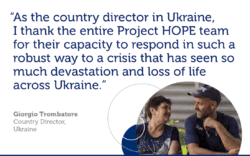
Project HOPE was one of the first organizations on the ground in Ukraine after the devastating invasion began in February. Since then, we have delivered hundreds of pallets of aid to health facilities across Ukraine, including medicines, medical supplies, insulin, needles, hygiene kits, emergency health kits, surgical kits, and children’s kits.
Project HOPE is also donating vehicles and generators, operating multiple mobile medical units, and reconstructing hospitals and other buildings in cities like Irpin, Bucha, and Borodyanka. Outside Ukraine, our work continues to support refugees in need across Moldova, Poland, and Romania with support like safe spaces for children and mental health assistance.
“As the country director in Ukraine, I thank the entire Project HOPE team for their capacity to respond in a such a robust way to a crisis that has seen much devastation and loss of life across Ukraine,” said Giorgio Trombatore, Project HOPE’s Ukraine country director. “I am thankful to see such promptness to respond to crises.”
A Brighter Future for Young People
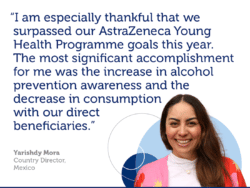
Diabetes is an urgent global health crisis that affects hundreds of millions of people worldwide. More than 1.5 million people die from diabetes every year, the majority in low- and middle-income countries where essential medicines like insulin may be completely out of reach.
In Mexico, Project HOPE is helping change that narrative by providing the education and support young people need to take control of the choices that determine their health. In partnership with AstraZeneca, we’re empowering young people in Mexico to practice healthier habits and bolstering the health services available to support them.
“Among all the wonderful things that happened this year, I am especially thankful that we surpassed our AstraZeneca Young Health Programme goals in terms of the youth we benefitted,” said Yarishdy Mora, Project HOPE’s Mexico country director. “The most significant accomplishment for me was the increase in alcohol prevention awareness and the decrease in consumption with our direct beneficiaries.”
A Commitment To Go Where the Need is Greatest
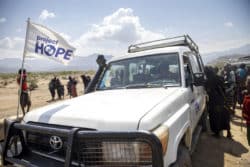
Though everyone deserves the same access to care, not everyone has the same access. All too often, the health care you receive depends on where you were born or the place you happen to live.
Project HOPE team members are working every day to close health gaps around the world, from remote communities in Ethiopia to maternity wards in the Dominican Republic. Because care should not depend on your gender, age, race, resident status, religion, income, or neighborhood.
In Ecuador, that work is reaching into indigenous communities thanks to an innovative program designed by the Universidad Católica de Cuenca. In partnership with Project HOPE, hundreds of newly trained health workers are delivering accurate information about how to stop the spread of COVID-19 in the native languages of Kichwa and Shuar, the indigenous languages most widely spoken in rural areas.
“I am grateful to Project HOPE because through the projects we developed in 2022, we were able to reach thousands of people in rural areas in Ecuador—especially the indigenous populations—with information about preventing the spread of COVID-19 in rural areas where no one else has arrived with information in indigenous languages,” said Ramiro Proaño, Project HOPE’s Ecuador country representative. “We also managed to train frontline professionals in COVID-19 across the country with mental health workshops.”
The Support Health Workers Need
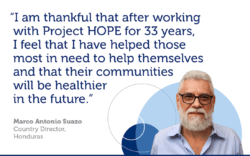
Health workers are at the heart of Project HOPE’s mission. Around the world, our work is delivering the support and protection health care workers need, from personal protective equipment and medical supplies to mental health trainings that help them protect their well-being.
“Despite the difficult situation of the COVID-19 pandemic, I am proud of the way Project HOPE has consistently supported health workers,” said Fathimatuzzahra Shafira, a team member in Indonesia. “As we know, pandemics have many impacts, not only physically but also mentally.”
In Honduras, where Project HOPE has worked since 1984, we’re helping improve health systems for vulnerable populations by training health workers with an emphasis on COVID-19. It’s just part of our global COVID-19 response that has provided lifesaving PPE, vaccines, medical volunteers, mental health support, and more to equip health care workers to reach their communities.
“I am thankful that after working with Project HOPE for 33 years, I feel that I have helped those most in need to help themselves and that their communities will be healthier in the future,” said Marco Antonio Suazo, Project HOPE’s Honduras country director.
How you can help
Make a lifesaving gift to support our work now and for the future at projecthope.org/donate
Are you a health-care or other professional who would like to learn more about volunteering abroad with Project HOPE? Learn more about our volunteer program and join our volunteer roster.
Stay up-to-date on this story and our lifesaving work around the world by following us on Facebook, Instagram, LinkedIn and Twitter, and help spread the word by sharing stories that move and inspire you.